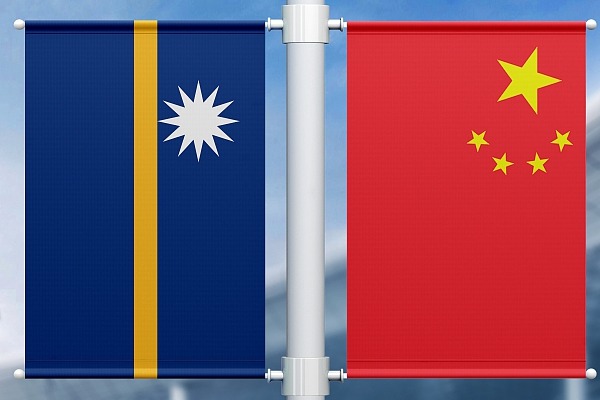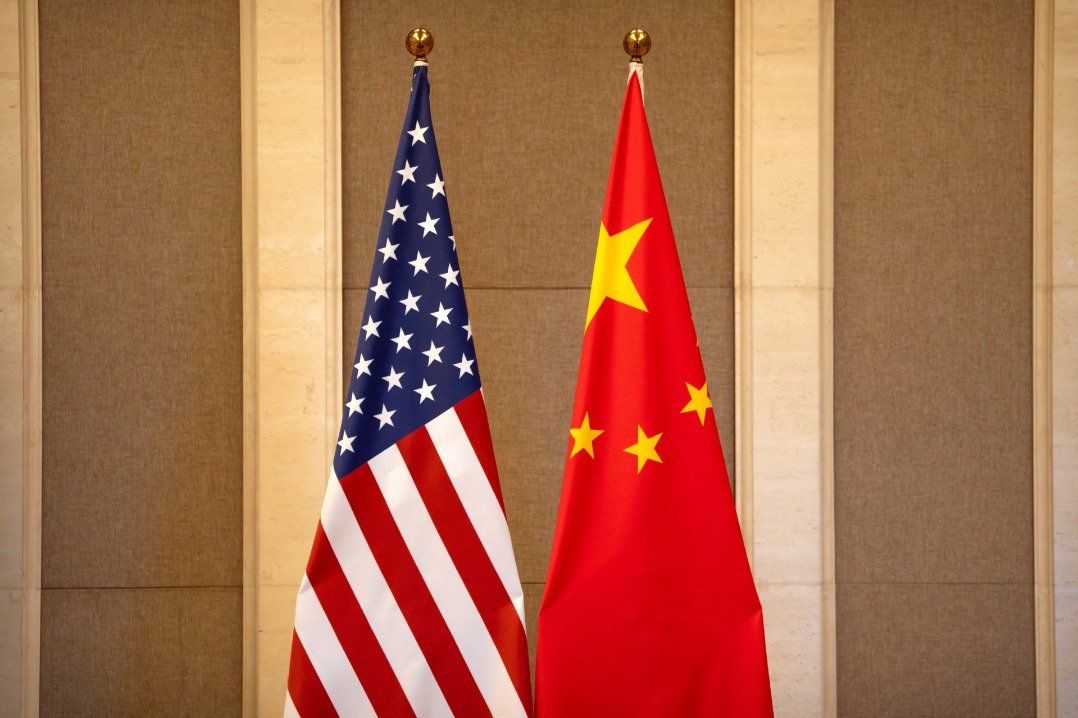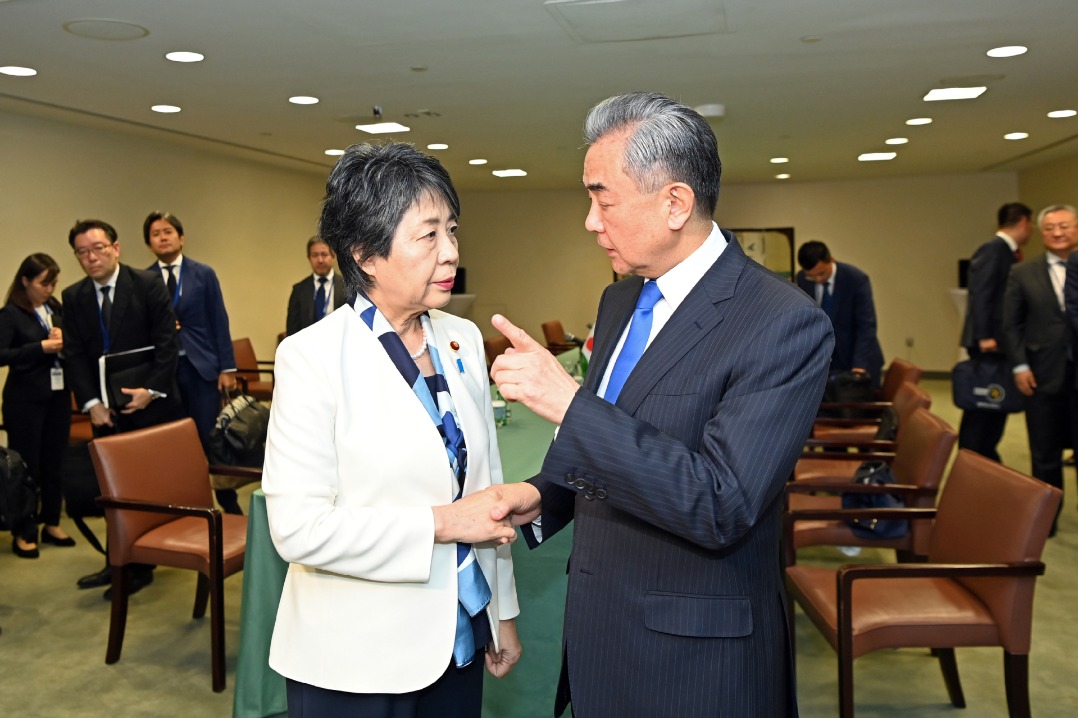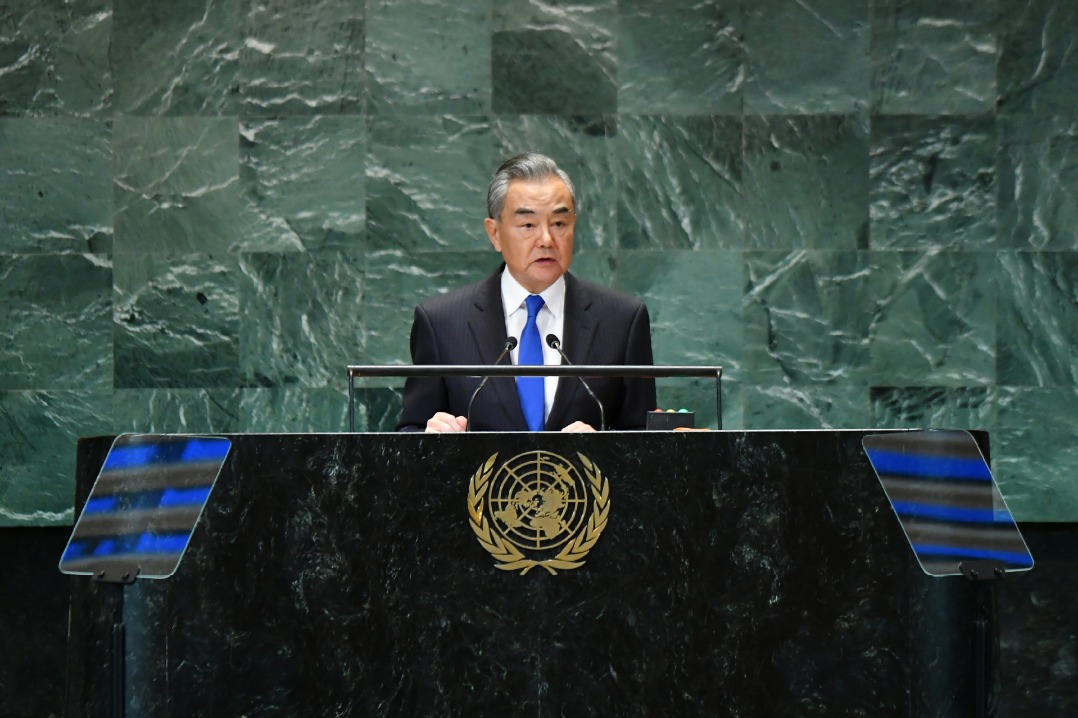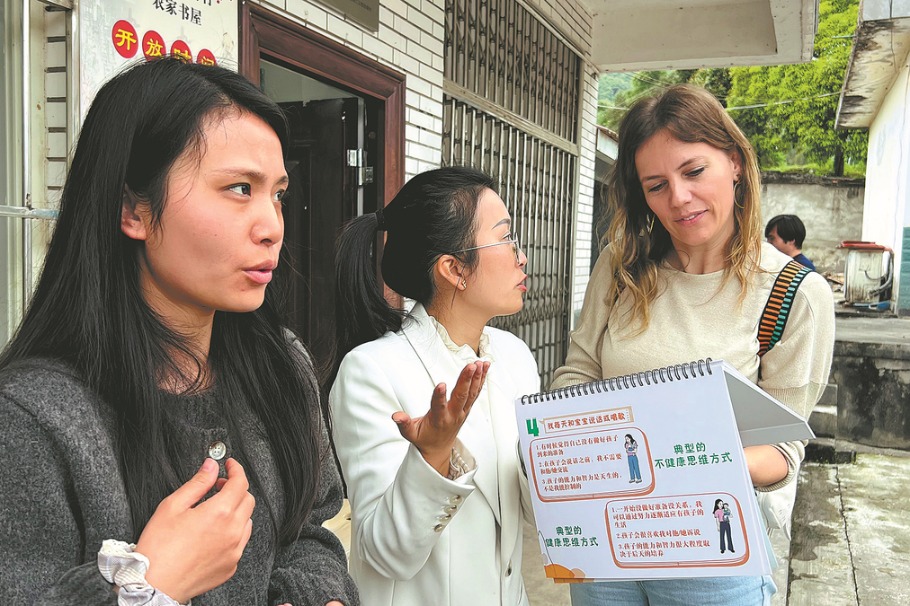China's FM: 'Politicizing' trade issues not helpful to any party


Chinese Foreign Minister Wang Yi met with his German counterpart in New York on Tuesday and said that politicizing trade disputes with China is not in anyone's interest and hinders the world's "green transformation".
Wang met with German Foreign Minister Annalena Baerbock on the sidelines of the 79th session of the United Nations General Assembly, which opened on Tuesday.
"Politicizing economic and trade issues and imposing excessive tariffs are not in the interest of any party and do not contribute to the world's green transformation," said Wang, also a member of the Political Bureau of the Communist Party of China Central Committee.
The meeting came as the European Commission plans to impose tariffs of up to 35.3 percent on Chinese-made electric vehicles (EVs), on top of the European Union's standard 10 percent car-import duty.
A vote by the 27 EU member states on the proposed final duties was scheduled for Wednesday but some news reports have suggested it could be delayed.
"We hope that Germany and the EU will adhere to open cooperation, dialogue and coordination; properly handle relevant issues, and jointly uphold international trade rules and a fair, competitive environment," said Wang.
"The half-century journey of China-EU relations fully demonstrates that strengthening China-EU cooperation serves the interests of both parties and contributes to global stability," he said.
The foundation of those relations lies in "mutually beneficial cooperation, as the two economies are highly complementary and can achieve synergy where one plus one is greater than two", he added.
On China-Germany relations, Wang said the two countries' economic and trade cooperation has stayed at a high level, an indication of the mutually beneficial and strategic nature of the bilateral ties.
Many German companies have taken the opportunities presented by China's pursuit of modernization, Wang said.
The cultivation of the Chinese market by German companies has led to a record high in Germany's investment in the first half of the year, he said.
That investment in China hit a record 7.3 billion euros ($8.2 billion) in the first half of 2024, according to data from the Central Bank of Germany.
As the world's second- and third-largest economies, "China and Germany can benefit from each other's development, jointly contribute to world peace and prosperity and instill stability to the world," Wang said.
Baerbock said that China is Germany's most important trade partner, and there is a wide range of sectors for bilateral cooperation that will yield mutually beneficial and win-win outcomes.
While adhering to the one-China policy, Germany also believes in upholding free trade and fair competition, and that issues should be resolved through open and transparent dialogue and consultation in order to maintain international trade rules and order, Baerbock said.
As the world's largest single market, the EU should strive to keep its market open, she said.
Germany places great importance on China's significant role in international affairs and is willing to strengthen coordination with China in multilateral mechanisms such as the United Nations while actively promoting the development of EU-China relations, Baerbock added.
China has consistently supported the United Nations in playing a central and leading role in international affairs and is willing to strengthen coordination with all parties, including Germany, to ensure that the UN and the Security Council effectively fulfill their responsibility to maintain peace and security.
The two sides also exchanged views on the conflicts in Ukraine and the Middle East.
minluzhang@chinadailyusa.com

















